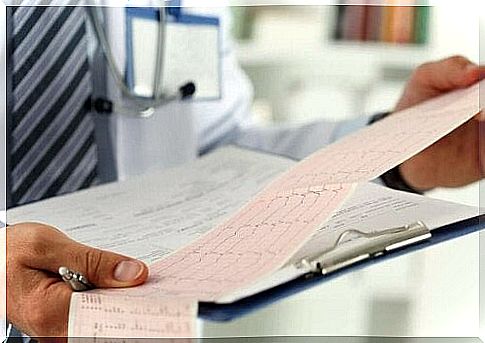The Effects Alcohol Has On The Heart

These days , there is some confusion about the effects alcohol has on the heart. Some sources suggest that drinking wine or beer in moderation may actually promote cardiovascular health. That being said, there are certain studies that mention the harmful effects these drinks have on the heart.
Both of these arguments are in fact correct. The effects alcohol has on the heart are varied and depend on our personal health, how much we drink, how often we drink and what type of alcohol we consume.
However, there is something no one can contradict: The effects of alcohol on the heart and other organs are very serious and even devastating when ingested in large quantities. Similarly, it is a psychoactive substance that can cause addiction. It can also significantly worsen the quality of life.
Myths and truths about the effects alcohol has on the heart

There is evidence that the effects alcohol has on the heart can be positive. Wine, for example, has a high content of antioxidants (flavonoids, tannins, anthocyanins and resveratrol). These substances can help prevent the formation of plaque in the arteries (atherosclerosis). Furthermore, they improve the production of “good cholesterol”.
It has been said that drinking a glass of wine a day can induce these positive effects. However, a study published in the Journal of the American College of Cardiology notes that while these positive effects are real, alcohol consumption, even moderate ones, increases the risk of irregular heartbeat.
Another study, conducted by Professor Peter Kistler, from the Baker Heart and Diabetes Institute and Alfred Hospital in Melbourne (Australia), supports this. It indicates that moderate alcohol intake can help keep the “pipes” in the body clean, but it can also affect the electrical parts of the heart, and then specifically the heart rhythm.
To drink moderately and to drink too much
There is a lot of talk about the importance of drinking alcohol in moderate amounts, and yet it is not entirely clear what is considered moderate and what is considered too much. The first thing that should be taken into account is the individual health of the individual. For example, if you have diabetes or hypertension, you should actually avoid alcohol, even in moderation.
On the other hand, the frequency of intake is also important. It is much more harmful to drink alcohol in large quantities, although this is only done on rare occasions. Drinking more than five glasses for men and four for women increases the risk of stroke and sudden death.
The US Department of Health’s dietary guidelines state that a moderate consumption is a maximum of one drink a day for women and two for men. However, many experts claim that it is best not to drink daily and to avoid alcohol for at least two or three days a week.
Atrial fibrillation

One of the risks of alcohol consumption, even in moderate amounts, is that it can contribute to irregular heartbeats, as we mentioned above. Alcohol can damage the cells and cause fibrous tissue to form in the heart, causing the rhythm to change.
Furthermore , alcohol can change the way the heart cells contract, which over time can lead to irregular heartbeats. In the same way, it affects the autonomic nervous system, which, among other things, controls the heart rhythm.
This condition, known as atrial fibrillation, increases the risk of serious problems such as heart failure or stroke. It can happen in people who drink moderate amounts and a lot. In those who drink excessively, however, 60% may suffer from atrial fibrillation.
Other effects alcohol has on the heart
In some people, excessive alcohol intake can weaken the heart muscle and cause a disease called dilatative cardiomyopathy. If this happens, the heart expands and the pumping force decreases, causing symptoms of heart failure.
Alcohol also contributes to obesity, which also increases the risk of heart problems. Regular and excessive alcohol intake also doubles the likelihood of suffering from hypertension. The combination of alcohol and psychoactive substances can be deadly.









